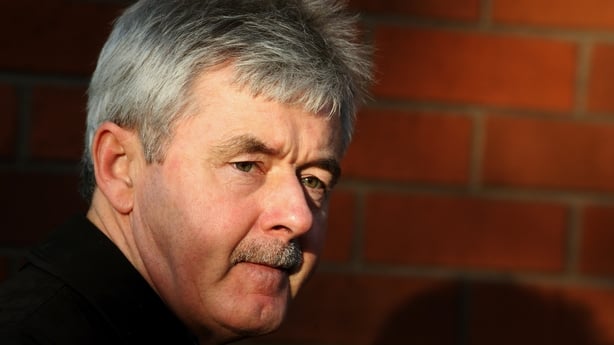A retired detective has told the High Court that Ian Bailey was not threatened or intimidated during his arrest and detention on suspicion of murdering Sophie Toscan du Plantier.
Denis Harrington was giving evidence on behalf of the defence in Mr Bailey's case against the gardaí and the State for wrongful arrest.
Mr Harrington, who was one of the arresting gardaí, denied that there was an aggressive atmosphere during Mr Bailey's detention in February 1997.
He said the interviews were conducted "in a professional manner as we would always do in such circumstances".
He said the interview was professional and not aggressive in any way.
Asked about the events in the car while en route to Bandon Garda Station, he said there was no threat made to Mr Bailey as far as he was concerned.
Mr Bailey had earlier told the court he had been threatened by another garda.
He said: "It wasn't a courteous journey, it was an official journey. Mr Bailey was aware he was under arrest on suspicion of murder but there were no undue unpleasantries in the car.
"He was protesting his innocence, saying we had the wrong man and that the real culprit was still running around."
Mr Harrington said that on a previous visit, Mr Bailey was telling them about events in France and about how powerful Ms Toscan du Plantier's husband was and that the press in France was being suppressed on his behalf.
During cross-examination, Mr Harrington said he had no knowledge of a "suspect file" in the case of Mr Bailey nor of any documents or records going missing.
He said he had never heard of a suspect file in this or any other case.
Counsel for Mr Bailey Ronan Munroe said there seemed to be a suspect file that had gone missing but Mr Harrington said he was not aware of any paperwork going missing.
Asked why Mr Bailey had been asked for his passport during an earlier encounter with gardaí, Mr Harrington said: "I don't know."
Asked why he would have taken Detective Supt Dwyer to meet Mr Bailey at the end of January 1997, he said he did not know.
He then said Det Supt Dwyer was "a nosey individual and he likes to know what is going on".
He said he did not ask why he wanted to meet Mr Bailey but that he and another garda drove him to Mr Bailey's house and left him there to speak to Mr Bailey.
Bailey's solicitor cross-examined on journal interview

Earlier, Mr Bailey's solicitor denied saying juries could be influenced by media coverage in advance of a case in an interview he gave to a legal publication.
Frank Buttimer was under cross-examination by counsel for the gardaí and the State.
Senior Counsel Luán Ó Braonáin read from an article published in The Parchment magazine last year in which Mr Buttimer discusses the impact of the media on the justice system in Ireland.
Mr Buttimer denied that his comments suggested that the decision of a jury could be influenced or manipulated.
He said it was nothing more than stating his opinion that solicitors should be aware of the role of the media and its influence on public perception.
Mr Buttimer said the interview, which was aimed at solicitors, was merely stating that legal practitioners should be conscious of the role of the media.
He said there were very strict rules in place ahead of trial before a jury which had to be adhered to.
Mr Buttimer accepted that he had given media interviews about Mr Bailey and had commented when asked, but he said he also had to be mindful of the impending jury trial as it got closer.
It was put to Mr Buttimer that he gave media interviews with "one eye on proceedings". He denied this.
It was put to him that there had been engagement with the media of a fairly constant kind by him on behalf of Mr Bailey and that he had been on television, radio and in newspapers.
Mr Buttimer said he had declined to comment about the case more than he had commented on it.
He said you had to look at it from Mr Bailey's point of view as well, as he had been subjected to a barrage of adverse publicity and any media engagement was a "rebalancing exercise".
Mr Buttimer said it was being suggested by the defence that he was using the media to influence the outcome of this case.
He said all he was doing was representing a client who had been the subject of such intense media interest over such a long period of time.
He said the case had attracted enormous media attention.

